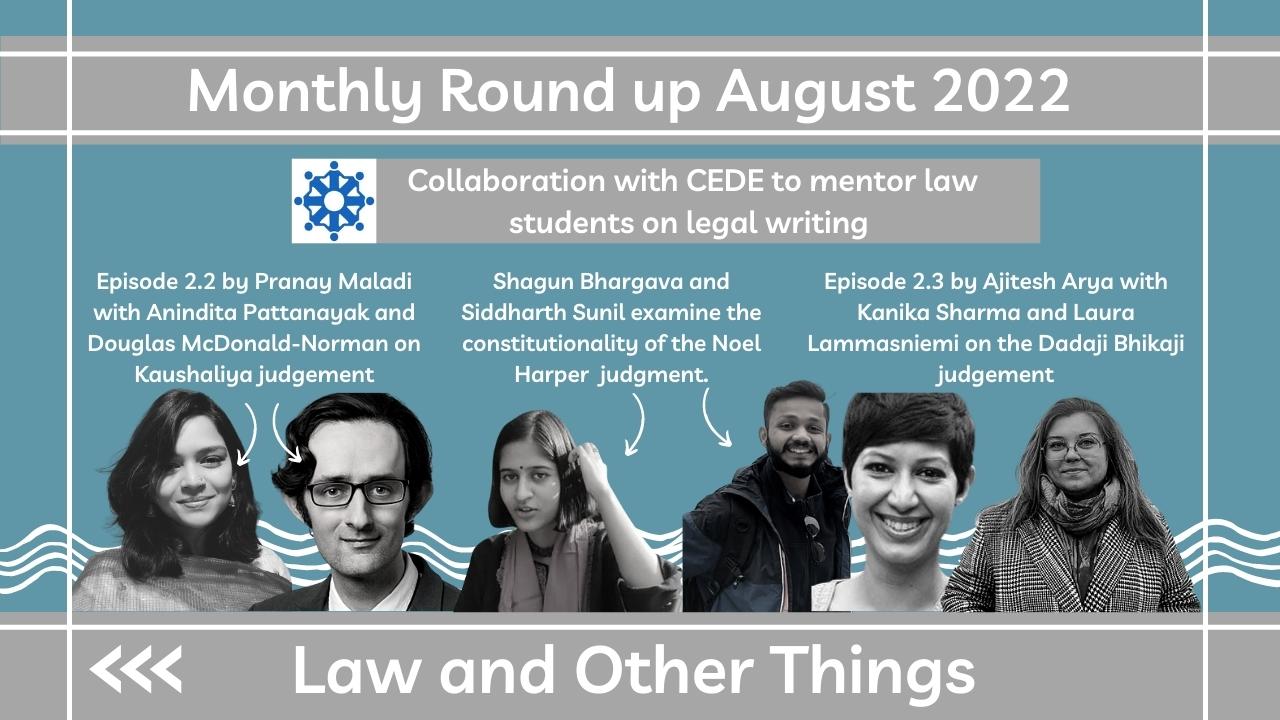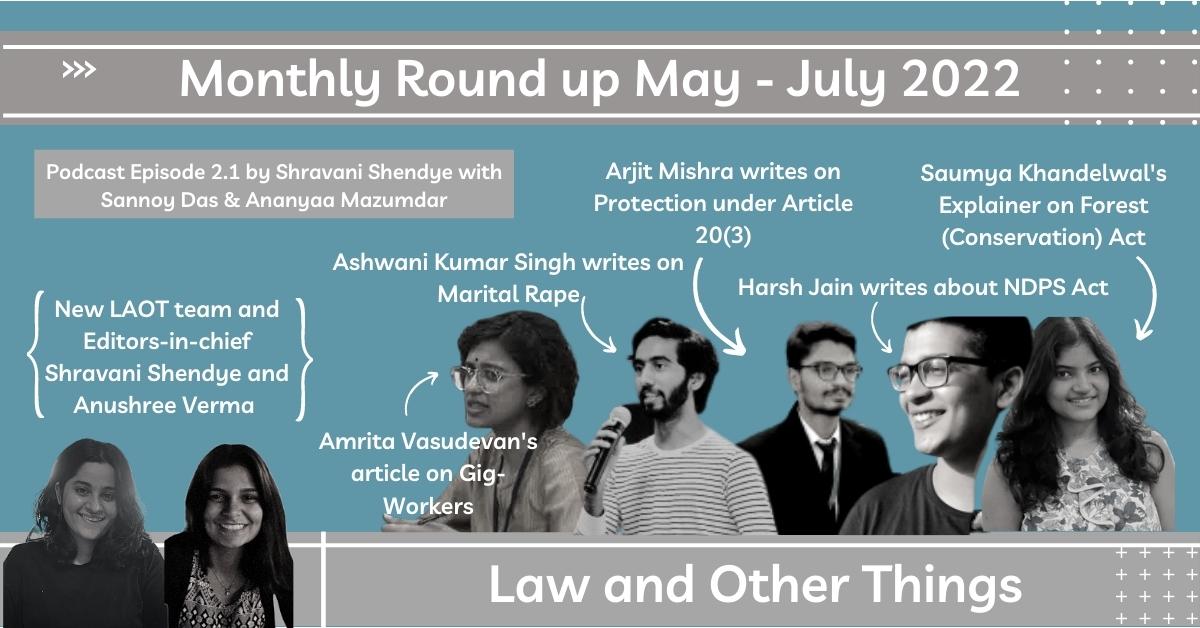As the 2020-21 academic year comes to a close, the Law and Other Things team bade farewell to the outgoing Student Editorial Board ably led by Dayaar Singla and Vishal Rakhecha. Taking over the reins are our new Editors-in-Chief Bhavisha Sharma and Gayatri Gupta, who will be leading the newly constituted Student Editorial Board 2021-22 comprising of Ajitesh Arya, Anushree Verma, Eeshan Sonak, Maladi Pranay, Mariyam Mayan, Pranjal Gautam, and Shravani Shendye.
We are pleased to bring you an update on the Blog’s activities over the month of July, where we hosted two exciting discussions as part of our New Scholarship Section.
Book Discussion on Arvind Elangovan’s Norms & Politics: Sir Benegal Narsing Rau in the Making of the Indian Constitution, 1935-50
We kicked off the month by continuing the book discussion on Prof. Arvind Elangovan’s Norms & Politics. The discussion was introduced by Prof. Rohit De here, towards the end of June. Prof. De also moderated the entire rest of the discussion.
The introduction was followed by a review from Prof. Gurpreet Mahajan, which emphasized on the importance of historical consciousness and highlighted questions that could be explored further. The next review was contributed by Dr. Vanya Vaidehi Bhargava, who also highlighted several engaging questions that require further exploration. Dr. Bhargava concluded that the political conflict which overwhelmed the Indian constitution-making itself represented a normative conflict. Thereafter, we published a review by Dr. Harshan Kumarasingham, in which he explored insights that emerge from the book, and the importance of Elangovan’s balanced historical examination at a time when South Asian history finds itself with ever more hagiography and hatchet jobs.
The last review of this discussion came from Prof. Arudra Burra, where he expresses his reservations about Elangovan’s historical analysis of the 1935 Act. Rather than viewing it as a tension between constitutionalism (Rau) and politics (Congress) as suggested by Elangovan, Prof. Burra argues that it points to a tension between the ‘authority’ and the ‘sovereignty’ conception of constitutions, and why they are to be valued. Prof. Burra further argues that our preoccupation with sovereignty gives rise to at least three distortions, and proposes talking about constitutionalism without sovereignty.
We ended the discussion with Prof. Elangovan’s final response to the various review pieces in the discussion. He concludes that Norms and Politics is a nascent attempt to speak to some of the largely unspoken ideas in India’s politico-constitutional imagination.
Discussion on Dr. Upendra Baxi’s article ‘Human Rights in the Administration of Criminal Justice: The Concept of Fair Trial’
While July marked the conclusion of our book discussion on Prof. Elangovan’s Norms & Politics, it also marked the beginning of our discussion on Prof. Upendra Baxi’s article titled Human Rights in the Administration of Criminal Justice: The Concept of Fair Trial. The discussion was introduced by our former reporter Sahil Agarwal here.
The first response to the article came from Prof. Amita Dhanda. In her piece titled ‘No Democratic Protest if No Fair Trial’, Prof, Dhanda reflects on the emancipatory potential of protest and the inter se relationship between Baxi’s normative narrative and the politics of protest. We look forward to continued engagement with our readers and have some very interesting responses to Prof. Baxi’s article lined up over the next few weeks!
You can sign up for our Monthly Newsletter here or follow us on Facebook, LinkedIn, Twitter or Instagram.






Your point of view caught my eye and was very interesting. Thanks. I have a question for you.